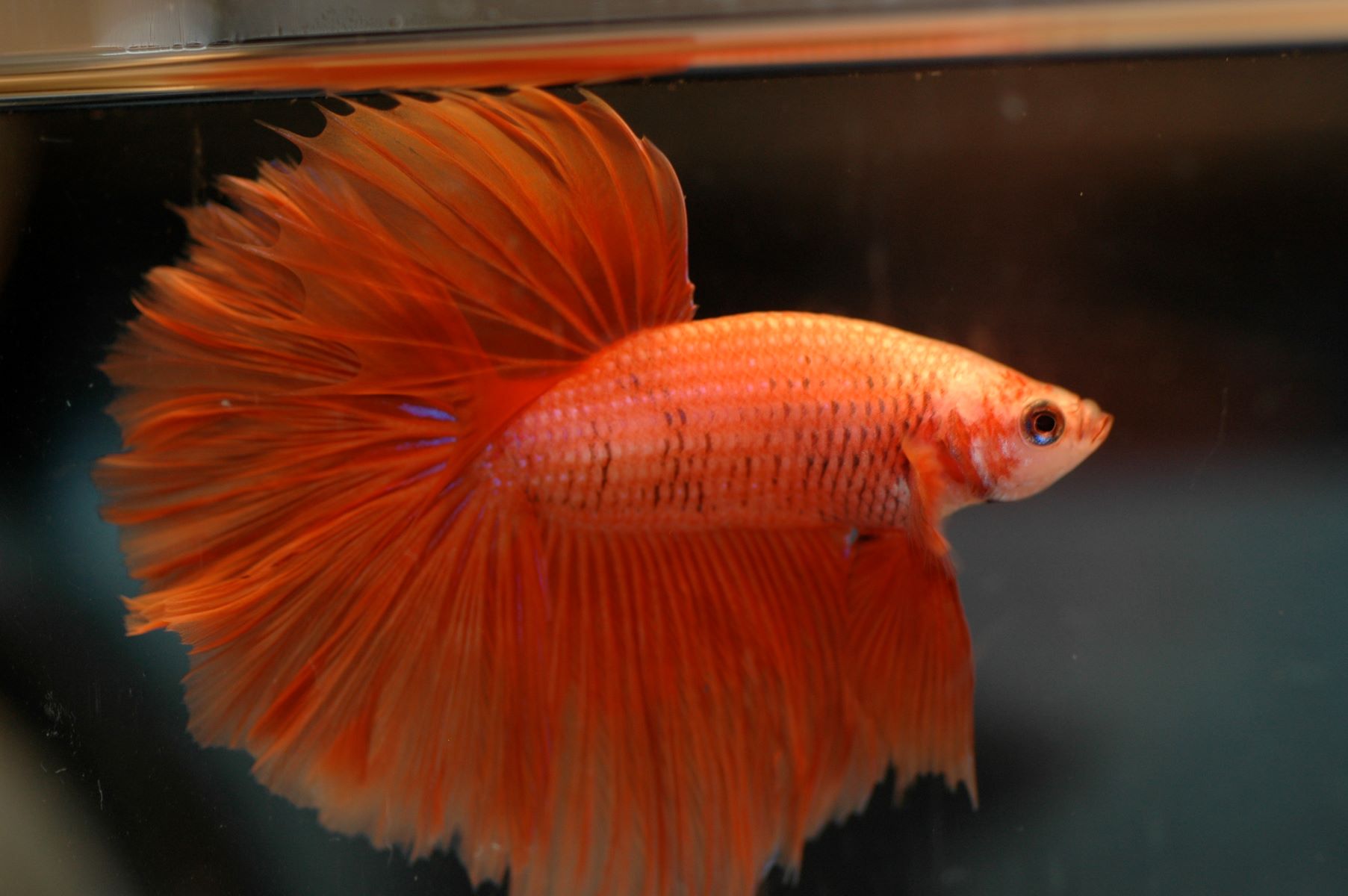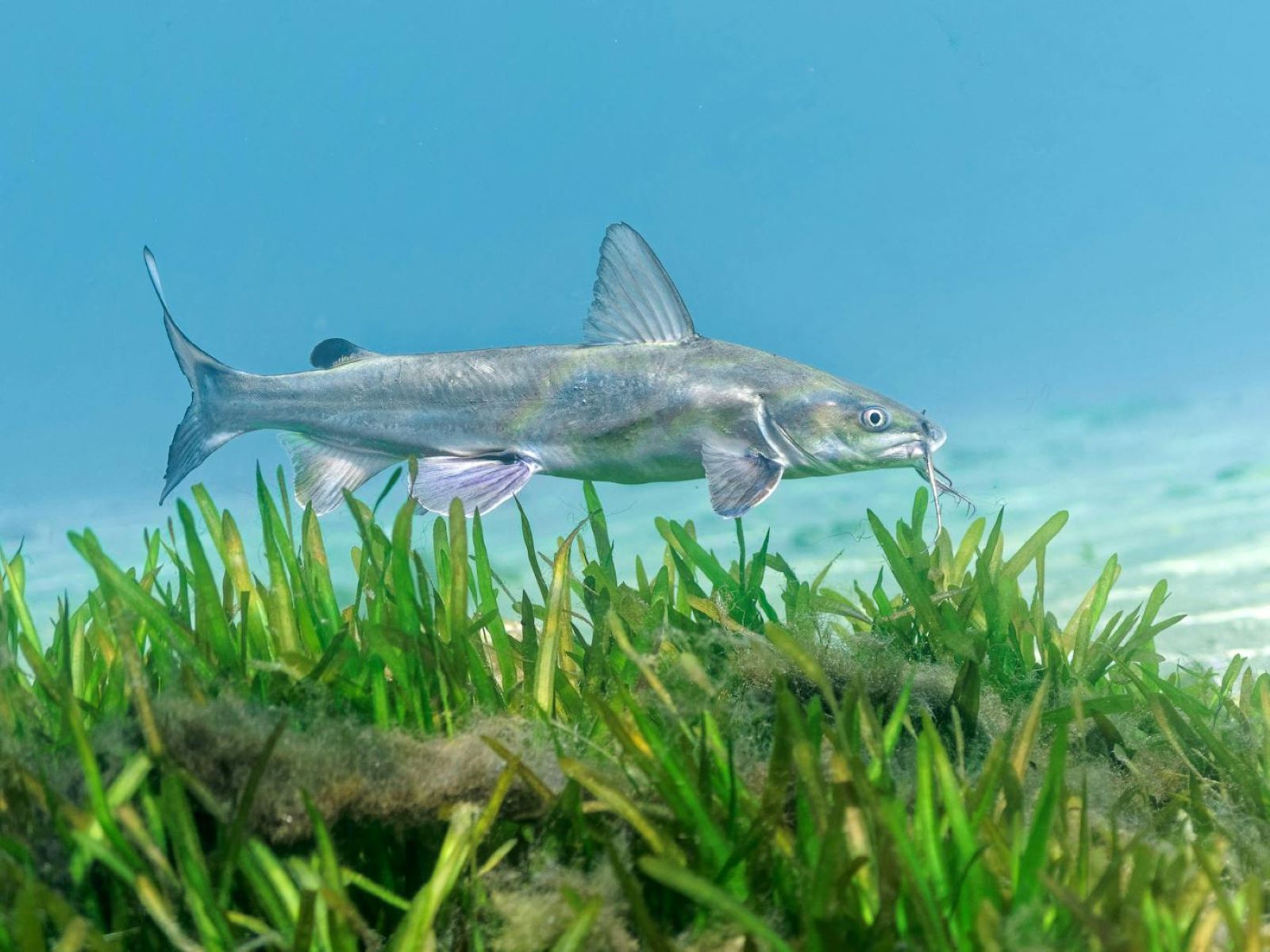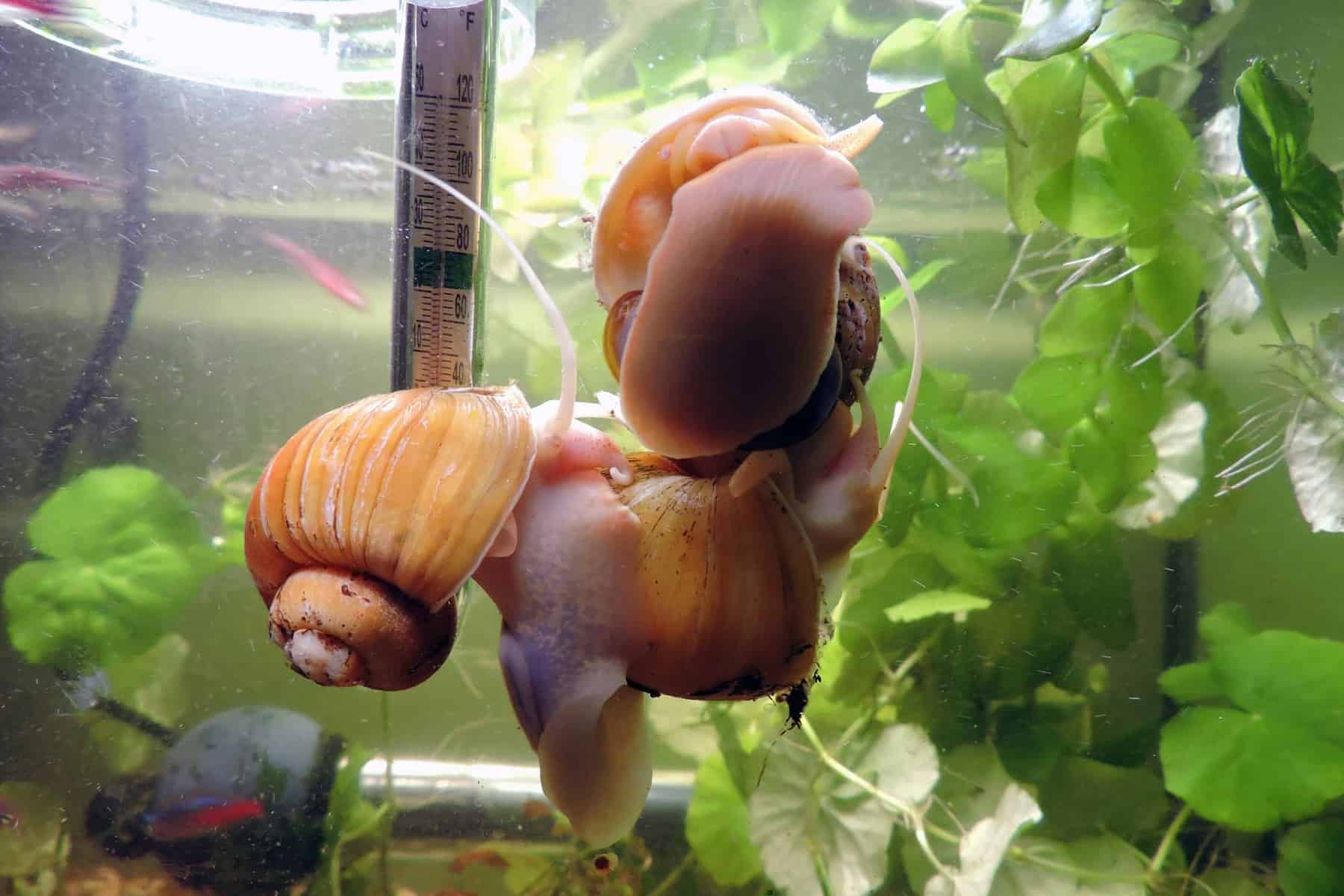Home>Science>The Surprising Intelligence Of Betta Fish Revealed!


Science
The Surprising Intelligence Of Betta Fish Revealed!
Published: February 10, 2024
Discover the fascinating science behind the intelligence of Betta fish. Uncover surprising insights into their cognitive abilities and behavior. Explore the intriguing world of Betta fish intelligence!
(Many of the links in this article redirect to a specific reviewed product. Your purchase of these products through affiliate links helps to generate commission for Regretless.com, at no extra cost. Learn more)
Table of Contents
Introduction
The Betta fish, also known as Siamese fighting fish, have long been admired for their stunning colors and flowing fins. These beautiful creatures are popular pets in the aquarium trade, captivating enthusiasts with their graceful movements and unique behaviors. However, beyond their aesthetic appeal, Betta fish possess a surprising level of intelligence that often goes unnoticed. In this article, we will delve into the remarkable cognitive abilities of Betta fish, shedding light on their problem-solving skills, memory, learning capacity, and social intelligence.
As we explore the depths of Betta fish intelligence, we will unravel the fascinating ways in which these small, vibrant fish navigate their environment, interact with their surroundings, and demonstrate cognitive prowess that challenges traditional perceptions of fish intellect. Join us on a journey to uncover the hidden world of Betta fish intelligence, where these remarkable creatures defy expectations and showcase their remarkable cognitive abilities.
Betta Fish Behavior
Betta fish, scientifically known as Betta splendens, are renowned for their captivating behavior, which sets them apart from other aquarium fish species. These remarkable creatures exhibit a wide array of behaviors that reflect their intelligence and adaptability. Understanding Betta fish behavior provides valuable insights into their cognitive capabilities and the ways in which they interact with their environment.
Territorial Nature:
One of the most distinctive traits of Betta fish is their territorial nature. In the wild, Betta fish inhabit shallow waters, including rice paddies, ponds, and slow-moving streams. Their natural habitat is characterized by limited space, prompting Betta fish to develop territorial behavior as a means of survival. In aquarium settings, Betta fish display this territorial instinct by fiercely defending their designated space, often engaging in aggressive displays towards other fish, particularly male Betta fish. This territorial behavior is a testament to their cognitive awareness and ability to establish and defend their space within a confined environment.
Labyrinth Organ:
Another fascinating aspect of Betta fish behavior is their utilization of the labyrinth organ. This unique respiratory adaptation allows Betta fish to breathe air from the water's surface, enabling them to survive in oxygen-deprived environments. Observing Betta fish as they periodically rise to the water's surface to gulp air serves as a testament to their adaptive behavior and intelligence. This remarkable feature showcases their ability to navigate their surroundings and employ innovative strategies to thrive in diverse aquatic conditions.
Interactive Responses:
Betta fish are also known for their interactive responses to external stimuli. These intelligent creatures readily react to changes in their environment, displaying curiosity and awareness of their surroundings. Whether it's responding to the presence of their caretaker during feeding time or exhibiting inquisitive behavior towards new tank decorations, Betta fish demonstrate a level of engagement and cognitive awareness that transcends mere instinctual reactions.
Behavioral Flexibility:
Furthermore, Betta fish exhibit behavioral flexibility, adapting to varying conditions and stimuli. Their ability to adjust their behavior in response to changes in their environment reflects a level of cognitive adaptability that is often underestimated. This behavioral flexibility underscores the intelligence of Betta fish and their capacity to navigate their surroundings with astuteness and resilience.
In essence, the behavioral repertoire of Betta fish offers a captivating glimpse into their intelligence and cognitive prowess. Their territorial nature, utilization of the labyrinth organ, interactive responses, and behavioral flexibility collectively showcase the remarkable intelligence and adaptability of these captivating aquatic creatures.
This section will be followed by the next section on "Problem-Solving Abilities."
Problem-Solving Abilities
Betta fish, despite their diminutive size, exhibit remarkable problem-solving abilities that challenge conventional notions of fish intelligence. These captivating creatures display cognitive prowess in navigating and overcoming challenges within their environment. One notable aspect of Betta fish problem-solving abilities is their adeptness at locating and accessing food sources. In the wild, Betta fish encounter various obstacles when foraging for food, such as navigating through dense vegetation and identifying prey in their natural habitat. This necessitates the utilization of problem-solving skills to secure sustenance. In aquarium settings, Betta fish continue to demonstrate their problem-solving acumen by employing innovative strategies to access food, such as manipulating floating pellets or engaging in complex hunting behaviors to capture live prey.
Moreover, Betta fish showcase their problem-solving abilities when presented with environmental enrichment, such as puzzle feeders or interactive toys. These stimuli prompt Betta fish to engage in exploratory behavior, utilizing their cognitive faculties to decipher and overcome challenges. Observing Betta fish as they methodically interact with enrichment devices, employing trial-and-error strategies to obtain rewards, provides compelling evidence of their problem-solving capabilities.
Furthermore, Betta fish exhibit adaptability in problem-solving, showcasing the ability to learn from previous experiences and apply acquired knowledge to novel situations. This cognitive flexibility enables Betta fish to navigate and surmount obstacles within their environment, reflecting a level of intelligence that extends beyond instinctual responses.
In essence, the problem-solving abilities of Betta fish underscore their cognitive acumen and adaptive intelligence. Their adeptness at locating food, engaging with environmental enrichment, and demonstrating cognitive flexibility in problem-solving scenarios collectively highlight the remarkable intellect and resourcefulness of these captivating aquatic creatures.
This section will be followed by the next section on "Memory and Learning."
Memory and Learning
Memory and learning are fundamental aspects of cognitive function, and Betta fish exhibit remarkable capabilities in these domains. Despite their small size, Betta fish possess a surprising capacity for memory retention and learning, challenging traditional perceptions of fish intelligence.
Memory Retention:
Betta fish have demonstrated the ability to retain information over extended periods, showcasing their impressive memory retention. This is particularly evident in their response to familiar stimuli, such as recognizing their caretaker during feeding times or displaying anticipation in response to routine activities. Their ability to recall and associate specific cues with favorable outcomes underscores their cognitive adeptness and retention of learned information.
Associative Learning:
Betta fish also exhibit exceptional associative learning abilities, wherein they form connections between stimuli and outcomes. Through associative learning, Betta fish can link specific cues with subsequent events, allowing them to adapt their behavior based on past experiences. This form of learning enables Betta fish to make informed decisions and respond to environmental cues with remarkable accuracy.
Spatial Memory:
Another intriguing aspect of Betta fish cognition is their spatial memory, which encompasses their ability to navigate and remember their environment. Studies have shown that Betta fish possess spatial memory capabilities, enabling them to recall the layout of their surroundings and navigate with precision. This spatial memory facilitates their territorial behavior and aids in foraging, reflecting their cognitive prowess in spatial orientation.
Conditioned Responses:
Furthermore, Betta fish display conditioned responses, wherein they learn to associate specific stimuli with particular outcomes. This form of learning allows Betta fish to adapt their behavior based on environmental cues, demonstrating their cognitive flexibility and capacity for learned responses.
In essence, the memory and learning abilities of Betta fish highlight their remarkable cognitive prowess and adaptive intelligence. Their capacity for memory retention, associative learning, spatial memory, and conditioned responses collectively emphasize the intricate cognitive capabilities of these captivating aquatic creatures.
This section provides a comprehensive overview of the memory and learning abilities of Betta fish, shedding light on their remarkable cognitive prowess and challenging conventional perceptions of fish intelligence.
Social Intelligence
Betta fish, often perceived as solitary creatures, exhibit surprising levels of social intelligence that defy conventional notions of fish behavior. While they are known for their territorial nature and aggressive interactions with other male Betta fish, their social intelligence extends beyond mere confrontational displays. Understanding the intricacies of Betta fish social behavior unveils a complex network of interactions and communication that underscores their cognitive acumen.
Social Hierarchies:
In their natural habitat, Betta fish establish social hierarchies, particularly within confined spaces such as rice paddies and shallow waters. This hierarchical structure reflects their social intelligence, as they navigate complex social dynamics to establish and maintain their position within the group. In aquarium settings, Betta fish display similar social hierarchies, engaging in subtle communication and behavioral cues to assert dominance or establish social bonds with tank mates.
Communication and Signaling:
Betta fish communicate through a diverse array of visual displays and subtle cues, showcasing their social intelligence. From flamboyant fin displays to subtle body language, Betta fish employ a sophisticated signaling system to convey their intentions and assert their social status. These intricate communication mechanisms highlight their cognitive awareness of social dynamics and the ability to navigate complex social interactions.
Social Learning:
Furthermore, Betta fish demonstrate social learning capabilities, wherein they observe and learn from the behavior of their tank mates. This form of learning enables Betta fish to adapt their behavior based on social cues, showcasing their capacity for social intelligence and behavioral flexibility within a group setting.
Social Bonds:
Despite their territorial nature, Betta fish have the capacity to form social bonds with compatible tank mates. Observing their interactions with other fish reveals the nuanced social intelligence of Betta fish, as they navigate affiliative behaviors and establish social connections within their environment.
Cognitive Empathy:
Recent studies have suggested that fish, including Betta fish, may possess a form of cognitive empathy, wherein they demonstrate an understanding of the emotional states of their conspecifics. This intriguing aspect of social intelligence challenges traditional perceptions of fish cognition, highlighting the complexity of their social interactions and the depth of their cognitive abilities.
In essence, the social intelligence of Betta fish encompasses a rich tapestry of social hierarchies, communication, social learning, social bonds, and potentially, cognitive empathy. These facets collectively underscore the remarkable cognitive acumen and social intelligence of Betta fish, offering a captivating glimpse into the intricate social dynamics of these captivating aquatic creatures.
Conclusion
In conclusion, the captivating world of Betta fish intelligence transcends traditional perceptions of fish cognition, offering a rich tapestry of cognitive abilities and social dynamics that challenge conventional notions of aquatic intelligence. From their territorial behavior and problem-solving acumen to their memory retention, learning capabilities, and social intelligence, Betta fish showcase a remarkable array of cognitive faculties that highlight their adaptive intelligence and cognitive acumen.
The behavioral repertoire of Betta fish, including their territorial nature and utilization of the labyrinth organ, provides compelling evidence of their cognitive awareness and adaptability. Their problem-solving abilities underscore their adeptness at navigating challenges within their environment, showcasing their resourcefulness and cognitive flexibility. Furthermore, the memory and learning capabilities of Betta fish reveal their impressive capacity for memory retention, associative learning, spatial memory, and conditioned responses, challenging traditional perceptions of fish cognition.
Moreover, the social intelligence of Betta fish unveils a complex network of social hierarchies, communication, social learning, and potentially, cognitive empathy, highlighting the intricate social dynamics and cognitive acumen of these captivating aquatic creatures.
In essence, the intelligence of Betta fish offers a fascinating glimpse into the cognitive complexities of aquatic life, inviting us to reconsider our understanding of fish intelligence and the intricate cognitive abilities that underpin their behaviors. By unraveling the surprising intelligence of Betta fish, we gain valuable insights into the diverse forms of cognition that exist within the animal kingdom, fostering a deeper appreciation for the remarkable cognitive acumen of these captivating aquatic creatures.











